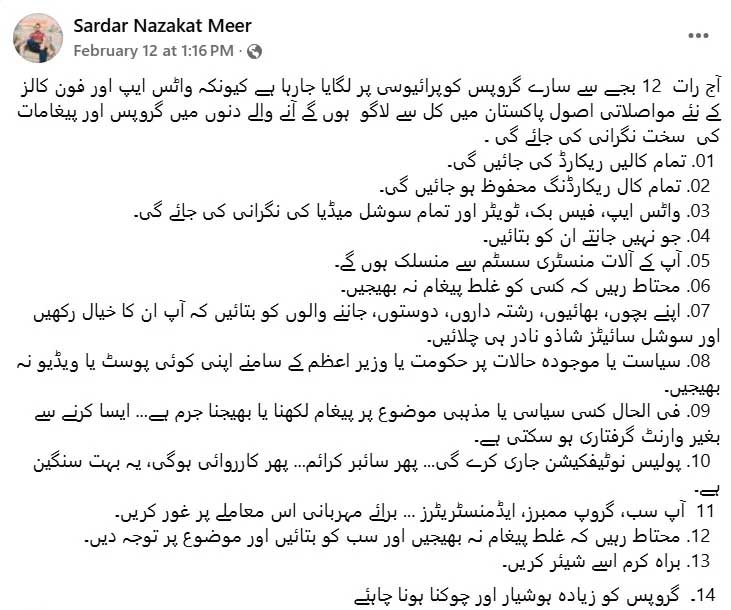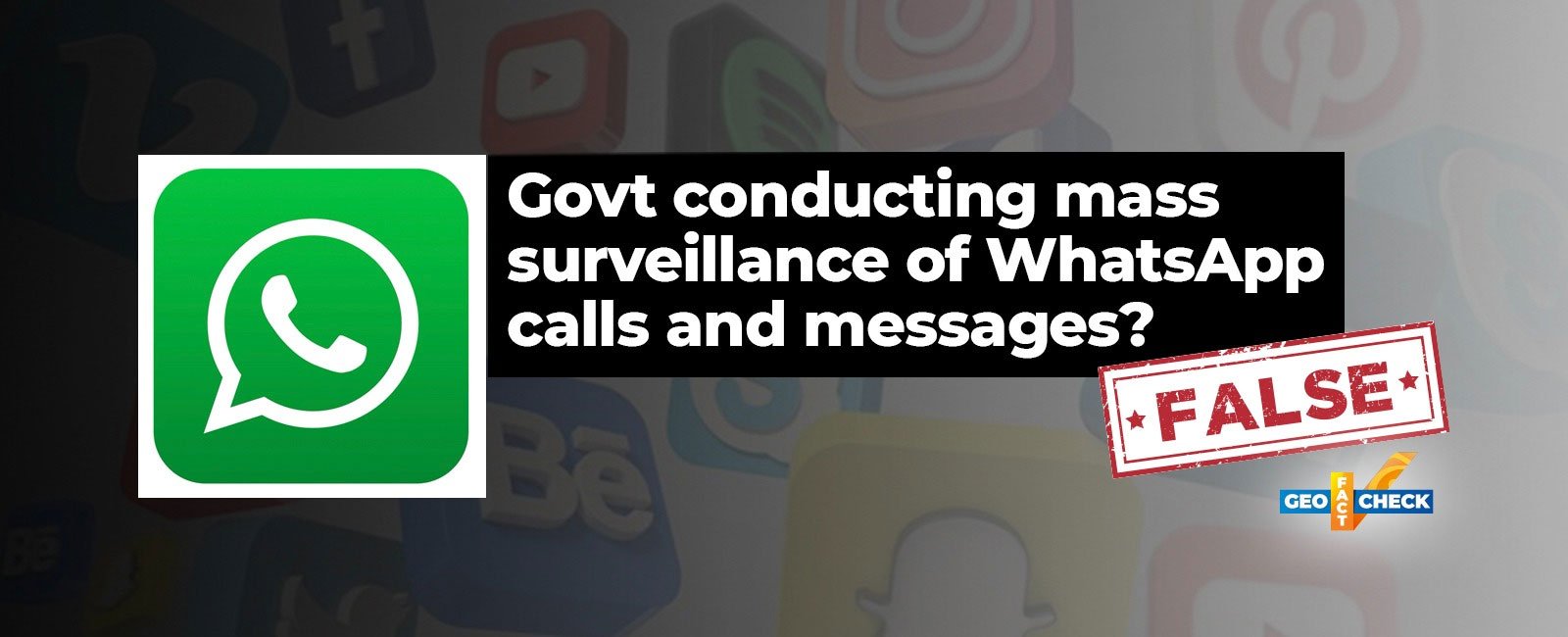Fact-check: Mass surveillance of WhatsApp calls and groups in Pakistan?
Due to end-to-end encryption (E2EE) used by WhatsApp, the Pakistani government cannot conduct mass surveillance on WhatsApp communications

A post circulating on Facebook claims that Pakistani authorities have introduced a new “mode” that allows them to monitor every Pakistani’s WhatsApp calls and groups. It goes on to warn that any politically or religiously sensitive messages posted on WhatsApp could lead to the user’s arrest.
The claim is false.
Claim
A Facebook post claimed that, starting February 12, all WhatsApp groups and phone calls in Pakistan would be put on “privacy mode.” According to the post, this mode would enable authorities to monitor all messages and calls. The post further claimed:
“All calls will be recorded; WhatsApp, Facebook, Twitter and all social media will be monitored; your devices will be connected to the ministry’s system. Sending a message on any political or religious topic is a crime. Doing so will lead to your arrest.”

Identical claims were shared elsewhere on Facebook here, here and here.
Fact
The claim that new rules have been implemented to monitor WhatsApp communications on a mass scale is false. Government officials and digital experts confirm that such rules or such a mode does not exist, and the government does not have the capability to monitor millions of WhatsApp calls or messages.
Geo Fact Check reached out to a senior official from the Pakistan Telecommunication Authority (PTA), who confirmed that the PTA has not issued any such directions and has no role in monitoring WhatsApp calls or messages.
Nighat Dad, the founder of the Digital Rights Foundation, explained to Geo Fact Check that, due to end-to-end encryption (E2EE) used by WhatsApp, the Pakistani government cannot conduct mass surveillance on WhatsApp communications.
“Even if they cannot read messages, governments may try to collect metadata from telecom companies or from WhatsApp (if the company cooperates under legal requests),” Dad explained. “This can include: Who you talk to (contact lists, call logs), when and how frequently you communicate, your location (if GPS data is enabled), group participation (e.g. if public groups are monitored).”
However, Dad clarified that while mass surveillance of WhatsApp messages is not possible, governments may target specific individuals or groups using spyware, such as Pegasus or other forms of malware.
“For mass surveillance, governments often focus on metadata, telecom-level monitoring, and social media surveillance, rather than attempting to break WhatsApp encryption,” she added.
Verdict: The claim that the Pakistani government has rolled out new communication rules allowing mass surveillance of WhatsApp calls and groups is false. Due to encryption, mass surveillance of WhatsApp messages is not feasible. Authorities can, however, target specific individuals using metadata and surveillance methods, but monitoring millions of WhatsApp users on a large scale is not possible.
Follow us on @GeoFactCheck on X (Twitter) and @geo_factcheck on Instagram. If our readers detect any errors, we encourage them to contact us at [email protected]





